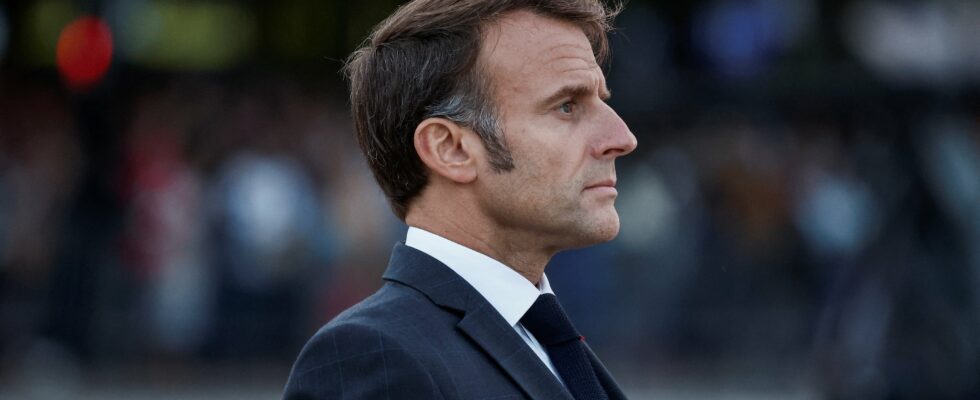Michel Barnier had no intention of keeping Stéphane Séjourné as Minister of Foreign Affairs. Because he held this position in the early 2000s and kept many contacts there, he had bad echoes about his distant successor. Aggravating circumstance: the latter had not retained the idea, however attractive in the eyes of the new Prime Minister, of placing his son on the Macronist list for the 2019 European elections. So out goes Séjourné, sent to Brussels, it is not a problem.
On the other hand, in the unprecedented institutional framework born of the dissolution, the game of musical chairs caused by the resignation of European Commissioner Thierry Breton raises two real questions. First, who is in charge of France’s European policy and, consequently, who appoints its representative to the Commission? Me, replied Emmanuel Macron. It is a golden rule in times of cohabitation, or of “demanding cooperation” as they say: he who dares nothing has nothing. The law is written as we go, the interpretation of one’s own power is worth all the audacity. Because we are here in uncharted territory.
For a long time, in previous cohabitations, France designated two commissioners, and everything was easy: the president chose one, the prime minister another. Today, France only has one representative and no text clearly specifies who, within the executive, has the final say.
The Macronists are also trying to push their advantage on another point: Foreign Affairs and Defense would be part of the reserved areas – this expression that does not exist anywhere in the texts, need we remind you? – of the head of state. They are almost suggesting that the choice of these two ministers should be made at the Elysée and not at Matignon, where we speak of “shared” areas.
Cat and mouse game
The history of the Fifth Republic shows the stakes of these power struggles. In 1986, the first cohabitation in history took place. Jacques Chirac, Prime Minister, recognized the presidential prerogatives in matters of diplomacy and defense: “We are Gaullists and we recognize the primacy of the President of the Republic in these areas.” But not for a moment did he consider that the holders of these ministries should be chosen on the proposal of the President. This would be a negation of Article 8 of the Constitution, which specifies in its paragraph 2: “On the proposal of the Prime Minister, the President appoints the other members of the government.” A right of scrutiny therefore, as theorized by Edouard Balladur at the time, no less, no more. The name of Valéry Giscard d’Estaing was thus mentioned. “Can you imagine yourself in a European Council, supervised by the President and the former President?”, Mitterrand remarked to Chirac.
It’s a game of cat and mouse. The Prime Minister doesn’t mention Jean Lecanuet, so the President takes the lead in rejecting him, judging him too Atlanticist. Cat and mouse again: the Elysée suggests that a career diplomat would be a good idea, Matignon suggests that a politician would do the job better. Cat and mouse again. François Léotard at Defense? Chirac doesn’t say so, Mitterrand gets ahead of him: “Your friend would be able to declare war without either of us noticing.” In the end, it will be two suggestions from Matignon – Ambassador Jean-Bernard Raimond and former Industry Minister André Giraud – that will be approved by the Elysée.
In 1993, Prime Minister Edouard Balladur passed on the name of Alain Juppé for Foreign Affairs to an emissary of Mitterrand. During a confidential discussion with Hubert Védrine, Secretary General of the Elysée, he was keen to stress: “If it were not Alain Juppé, that would pose a serious problem for me because we need someone capable and serious. He sometimes made some election campaign remarks (“the president should normally step down”, said the man who is also Secretary General of the RPR), but the President of the Republic is a man who understands that, and then Juppé said yes to the European Treaty of Maastricht.” Alain Juppé was appointed, and François Mitterrand did not regret it.
When the limits are crossed, there are no more limits… “Given the stakes, education is part of the president’s reserved domain”: in August 2023, in an interview with PointEmmanuel Macron is killing two birds with one stone. He is assuming the term “reserved domain” and extending it to education. Does this mean that he would like to be closely consulted on the fate of Nicole Belloubet, while the right, Annie Genevard in particular, is struggling to hide its appetite for the position? That would really be pushing the envelope. Have we ever seen a cat wanting to make itself as big as an ox?
.
